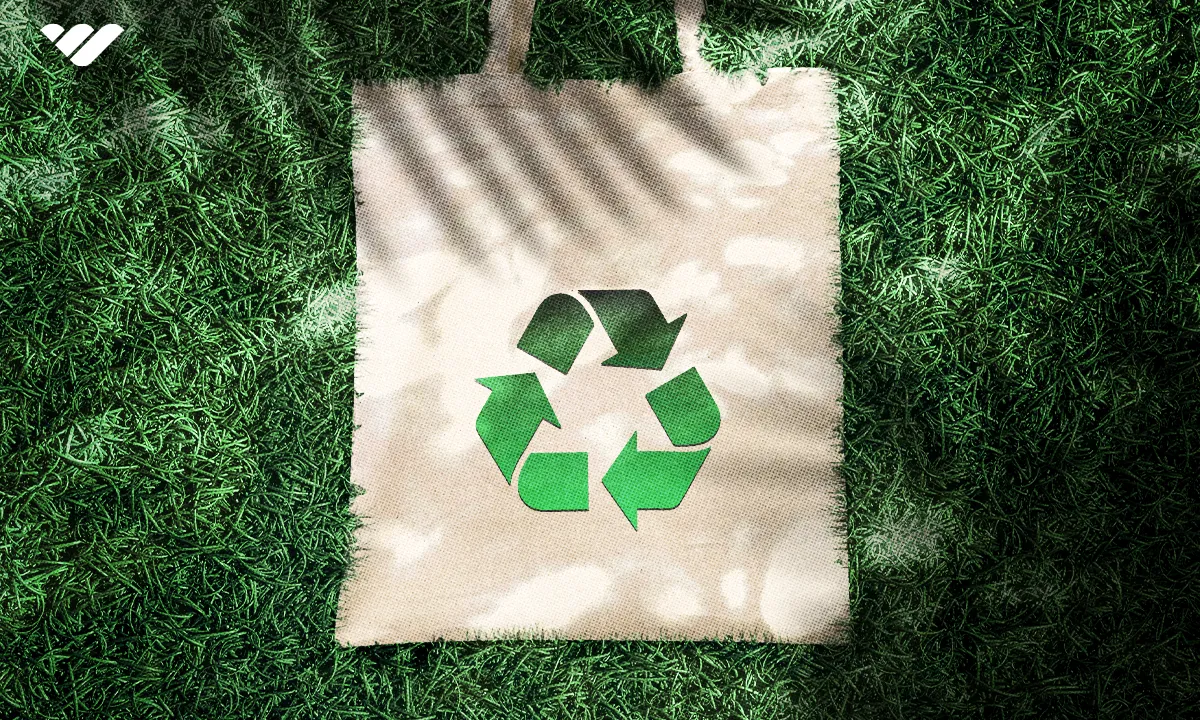Explore a range of environmentally conscious products, from reusable shopping bags to organic cotton clothes. Learn how embracing sustainability can benefit both you and the environment.
Key takeaways
- Eco-friendly products command higher profit margins because consumers willingly pay premium prices for sustainable alternatives.
- Strong consumer demand (62% actively seek sustainable products) makes eco-friendly goods a lucrative market opportunity.
- Bamboo, organic cotton, and biodegradable materials offer diverse product opportunities from personal care to home goods.
With so much media attention on climate change, society is increasingly aware of the need to choose more environmentally friendly consumption practices.
Today, 62% of consumers say that they "always or often" look for products to buy because they are sustainable, a number that reveals the high purchase intent for eco-friendly products. And with more and more brands adapting their products to be more eco-friendly following consumers' constant demand, it becomes increasingly easier to convert into sales.
Selling eco-friendly products can be an excellent business model with a high-profit margin. If you want to take part in this lucrative trend, we’ll discuss in this article its definition, why you should sell them, and give you our suggestions for the best eco-friendly products to sell.
What Is an Eco-Friendly Product?
Also known as sustainable products, eco-friendly products are items designed to minimize their impact on the environment. They’re created, or adapted, with the intent of reducing waste, conserving natural resources, and minimizing pollution throughout their life cycle—from production and use through disposal.
Some of the key characteristics of eco-friendly products are:
- Sustainable materials: Products made from renewable resources or recycled materials.
- Biodegradable or compostable: Many eco-friendly products can be designed to break down naturally without leaving harmful residues, like compostable phone cases or paper straws.
- Low energy consumption: Products designed to use energy efficiently, reducing their carbon footprint.
- Non-toxic and chemical-free: Eco-friendly products often avoid harmful chemicals and synthetic materials.
These are products that aim to preserve nature and the health of their consumers. Many cosmetic brands have even changed the formula of their most popular products to meet the requirements needed to have popular eco-friendly certifications.
Why Should I Sell Eco-Friendly Products?
Eco-friendly products are usually more expensive than regular products due to their high production cost, offering the opportunity for more profit for sellers. In addition, they’re genuinely beneficial products for the environment because they’re made from natural and recycled materials.
Other reasons to sell eco-friendly products include:
There is a growing consumer demand
More people prioritize sustainability in their purchases these days, favoring eco-friendly products over conventional ones. This trend is driven by a growing awareness of environmental issues and the need for a healthier lifestyle.
It's a great market niche
Many consumers are willing to support businesses that prioritize sustainability, even if it means paying a bit more. Positioning your brand as eco-friendly can create a strong, positive brand identity that attracts loyal customers.
Eco products create a positive brand image
Consumers tend to trust and feel good about supporting companies that contribute to environmental conservation. So offering eco-friendly products can enhance the reputation of your business. This positive image can lead to stronger customer loyalty and even a wide reach through word of mouth.
Regulatory compliance drives sustainable product consumption
In recent years, many governments worldwide have started implementing stricter environmental regulations, such as bans on single-use plastics and incentives for sustainable practices. Selling eco-friendly products means your business can stay ahead of changes and comply with future regulations.
You can contribute to a sustainable future
At their core, the point of eco-friendly products is to protect the planet. By selling sustainable items, your business will be contributing to the global effort to combat climate change, reduce pollution, and conserve natural resources. And doing so while building a nice business in the process doesn't hurt, right?
The 26 Best Eco-Friendly Products to Sell
Here are some of the best eco-friendly products to sell.
1. Reusable shopping bags
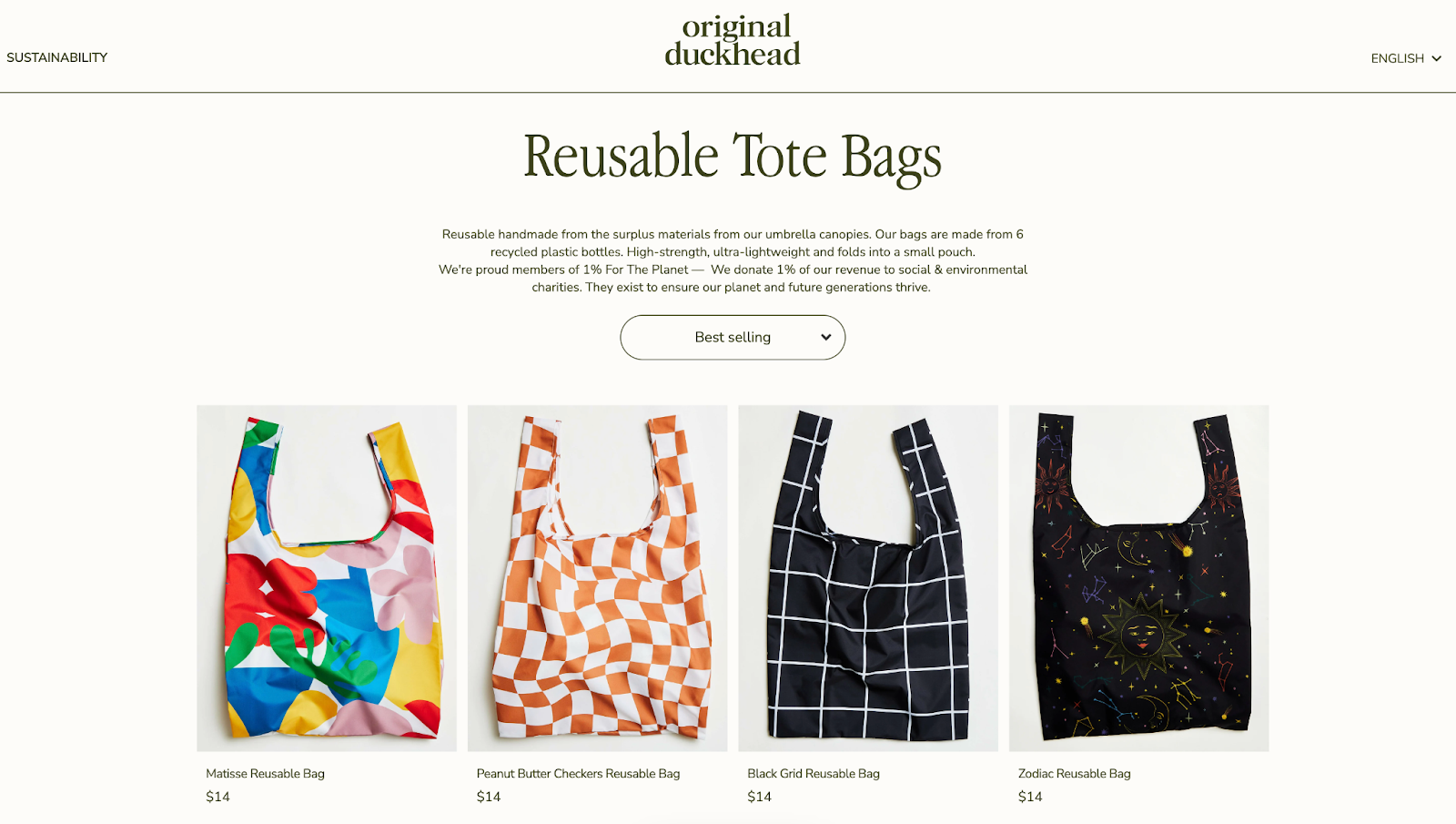
Made from materials like organic cotton, hemp, or recycled plastic, these bags offer a durable alternative to single-use plastic bags. They’re designed to be strong enough for heavy groceries and are washable, making for a long-lasting option.
2. Bamboo toothbrushes
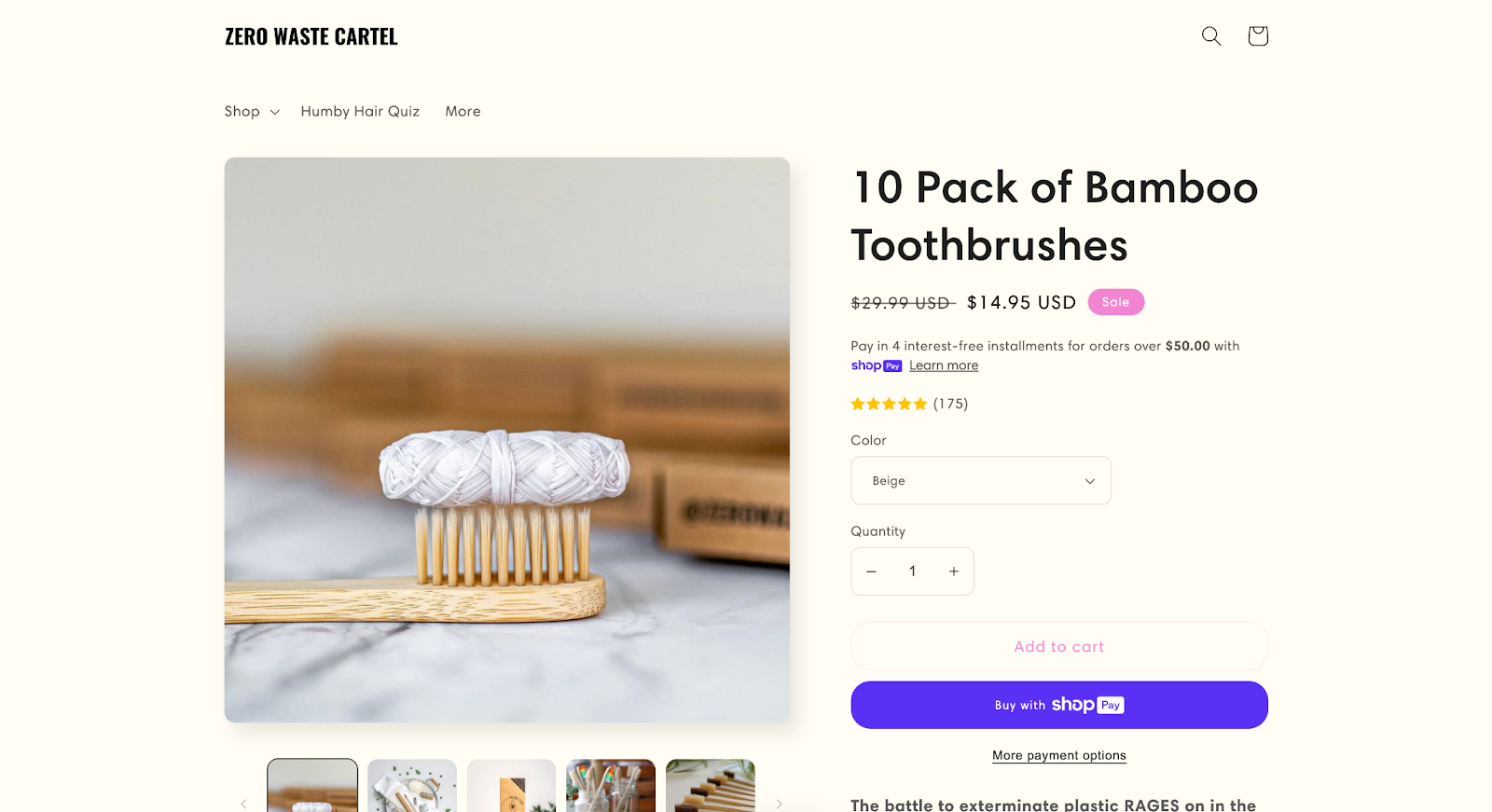
Unlike regular toothbrushes made from plastic, bamboo toothbrushes are biodegradable and can decompose naturally. The bristles are often made from biodegradable materials as well, making the entire product environmentally friendly.
3. Bamboo cutlery sets
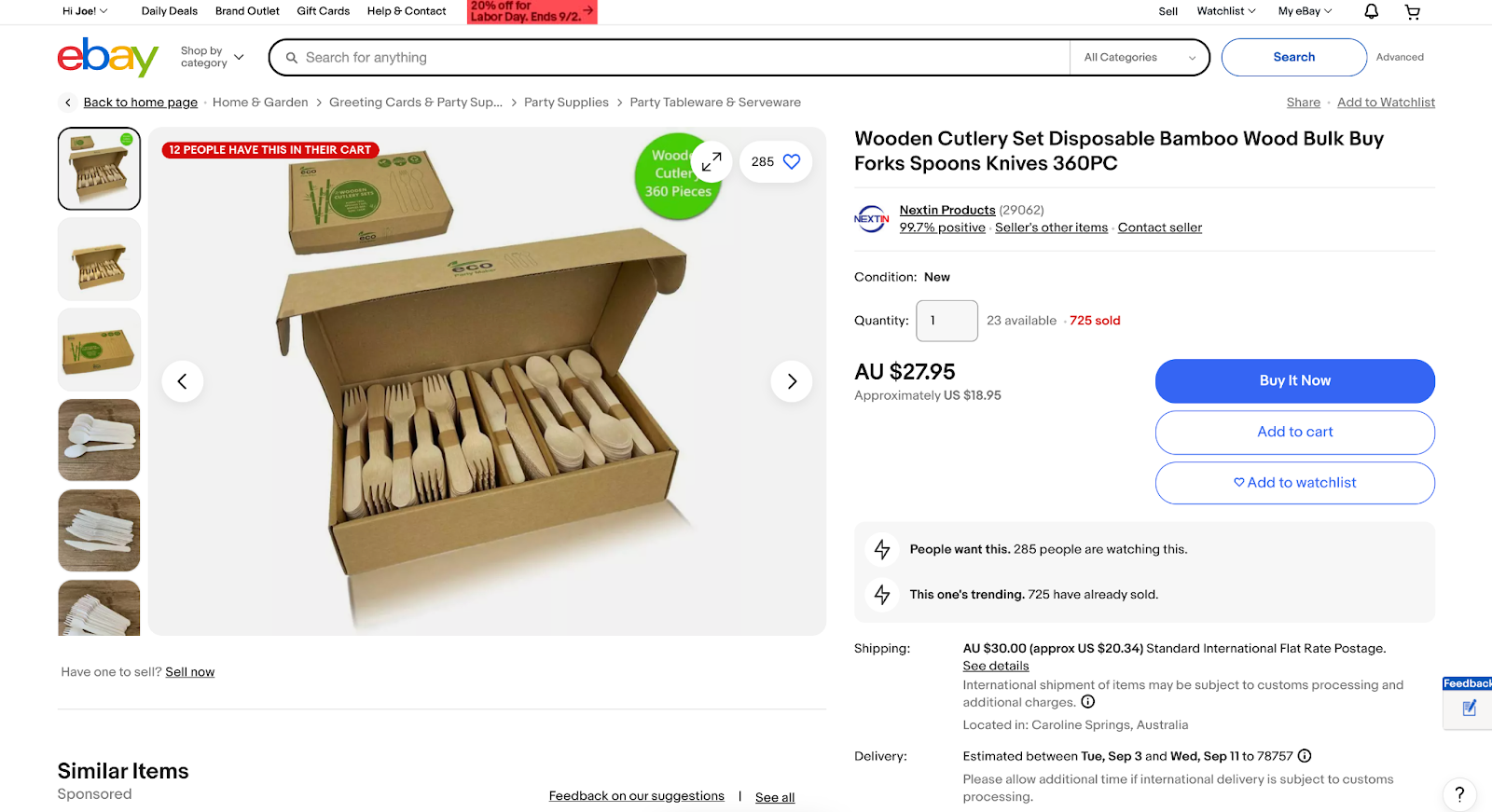
These reusable cutlery sets are entirely made of bamboo. They’re lightweight, durable, don’t leave any taste on food, and are a great alternative to plastic cutlery, being perfect for bringing on trips or picnics.
4. Beeswax wraps
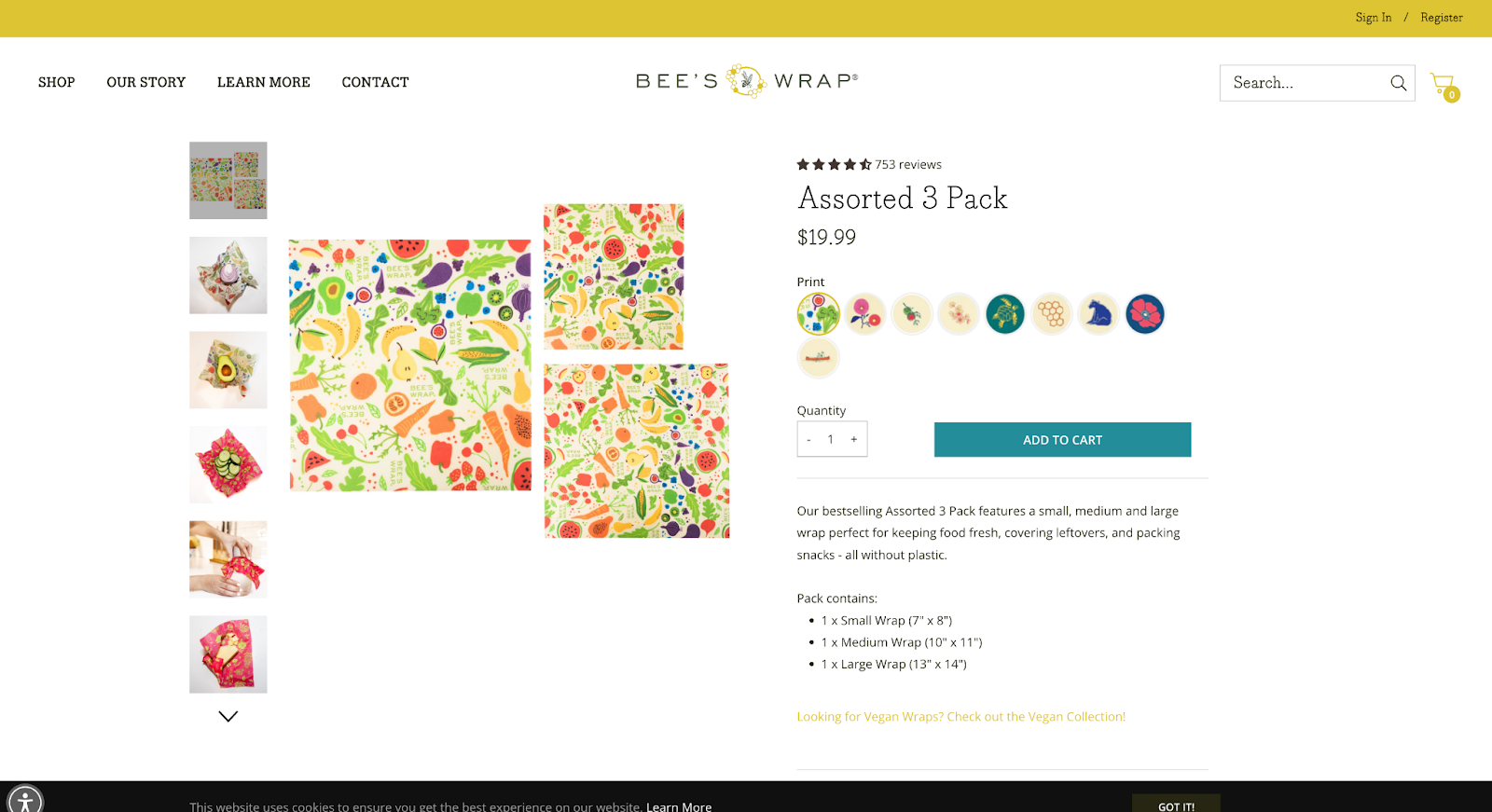
A sustainable alternative to plastic wrap, beeswax wraps are made from cotton fabric coated with beeswax resin and jojoba oil. They’re reusable, washable, and biodegradable. These wraps are ideal for covering bowls, wrapping sandwiches, or storing fruits and vegetables, keeping the food fresh in an eco-friendly way.
5. Organic cotton clothes
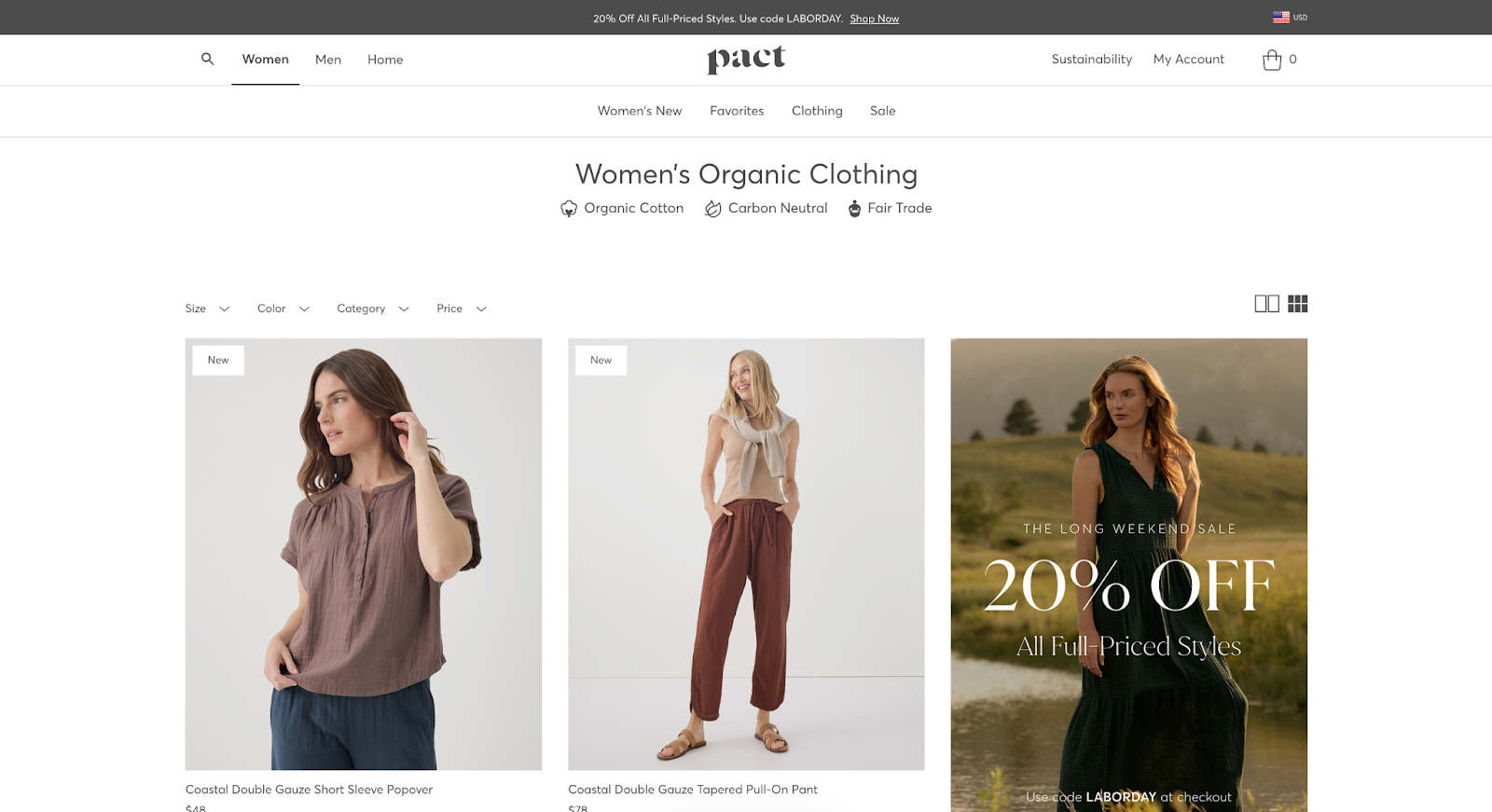
Made from cotton grown without synthetic pesticides or fertilizers, organic cotton clothes are softer and less likely to cause skin irritations. Clothes made from this material are more environmentally friendly, as organic farming practices promote biodiversity and soil health. They’re very popular among nature-conscious consumers and people are typically willing to pay a premium.
6. Reusable produce bags
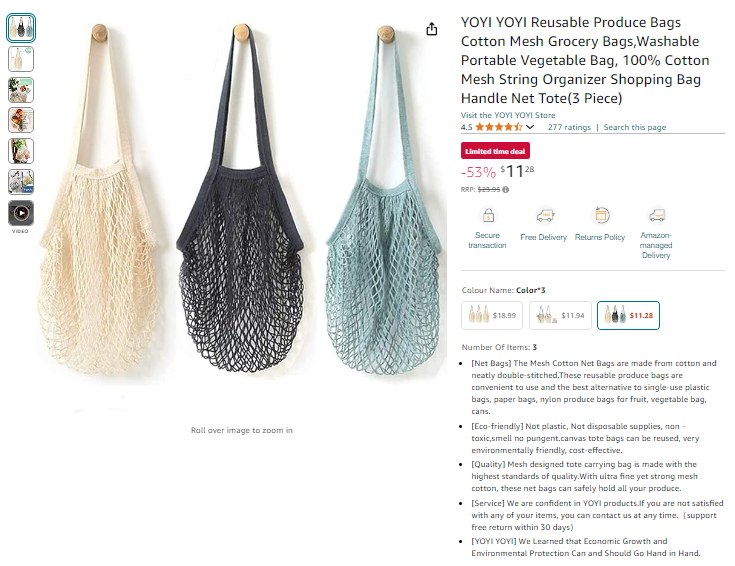
These lightweight, breathable bags are more designed for carrying fruit and vegetables. They can be made from materials like organic cotton or recycled mesh and are washable and durable.
7. Biodegradable phone cases
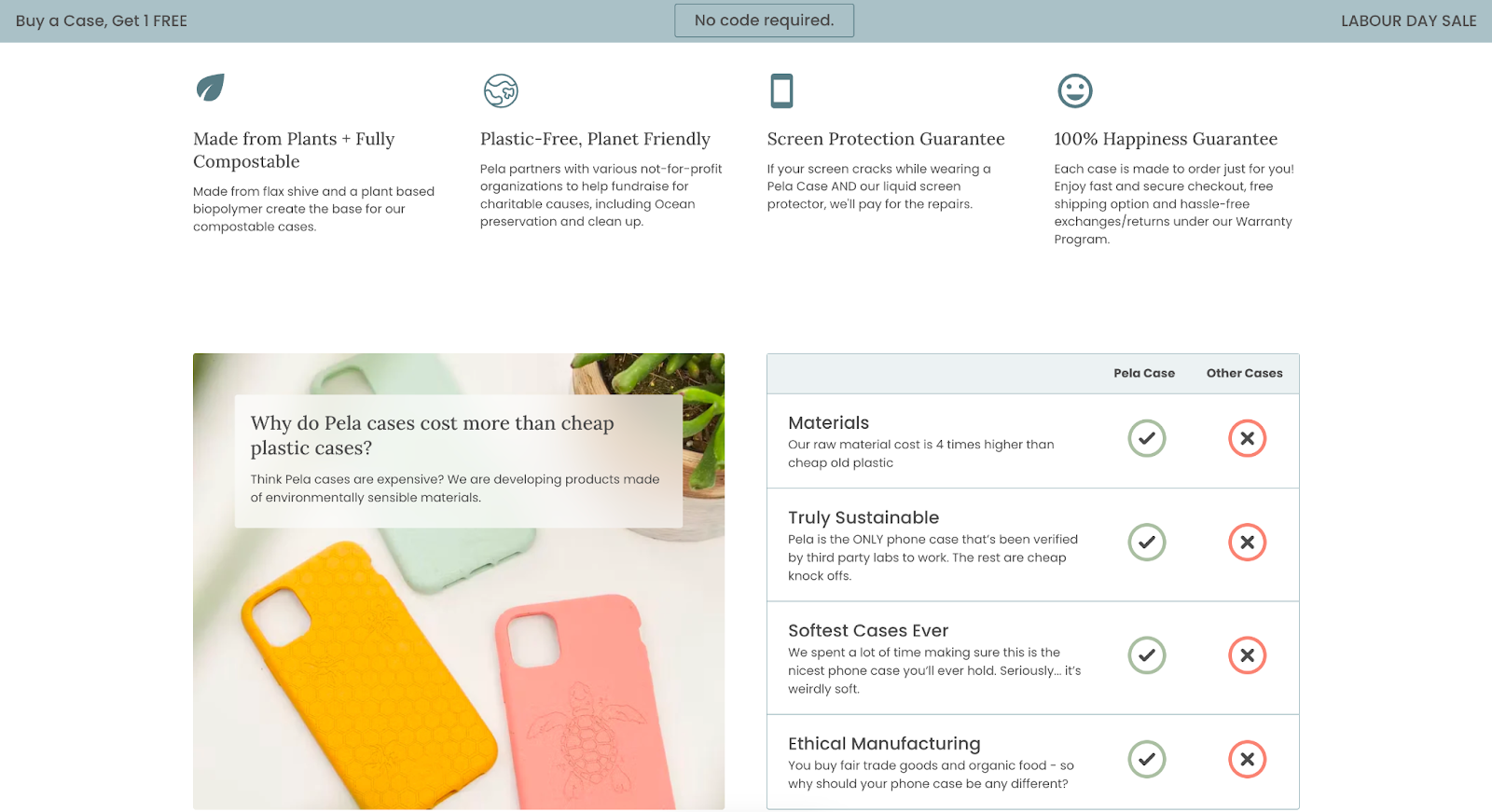
Biodegradable phone cases are made from compostable materials like plant fibers, cornstarch, or bamboo. They protect smartphones while also being sustainable, as they break down naturally at the end of their life cycle, leaving no harmful residues. Massive brands like Pela Case already do this, so think about putting your own spin on them. They also are flat and light—meaning less money is spent on shipping.
8. Eco-friendly laundry detergent
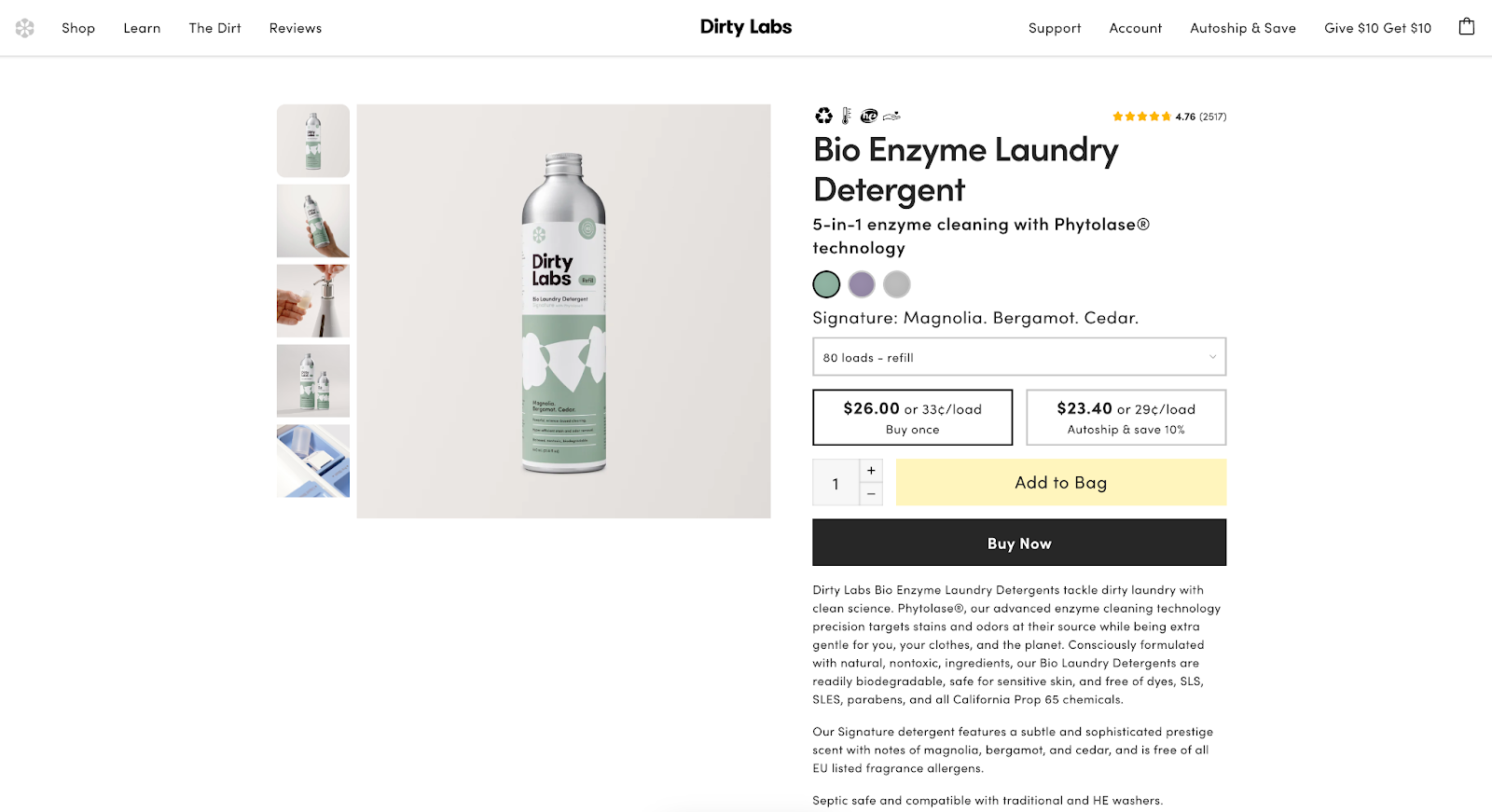
Formulated with non-toxic, biodegradable ingredients, eco-friendly laundry detergents are gentle on both clothes and the environment. They often come in concentrated forms, reducing packaging waste, and are free from harmful chemicals. The business opportunity is big as well. Take a brand like Dirty Labs, for instance; they’re able to charge about double the average price per load than traditional brands.
9. Compostable coffee pods
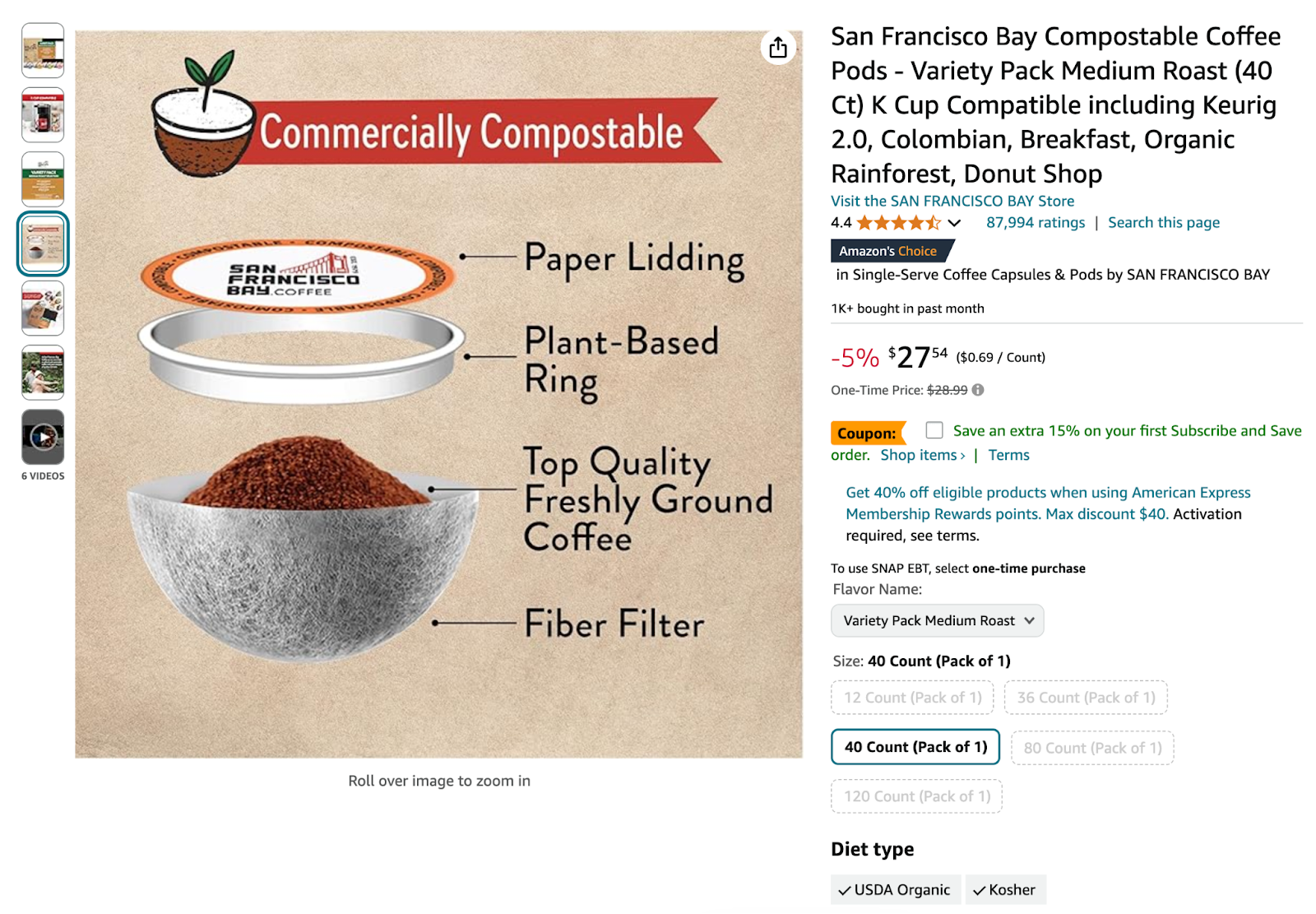
Providing the convenience of good coffee without the environmental impact of traditional plastic pods, these coffee pods are made from plant-based materials that can be composted after use. You can also offer subscriptions to generate monthly recurring revenue.
10. Reusable coffee filters
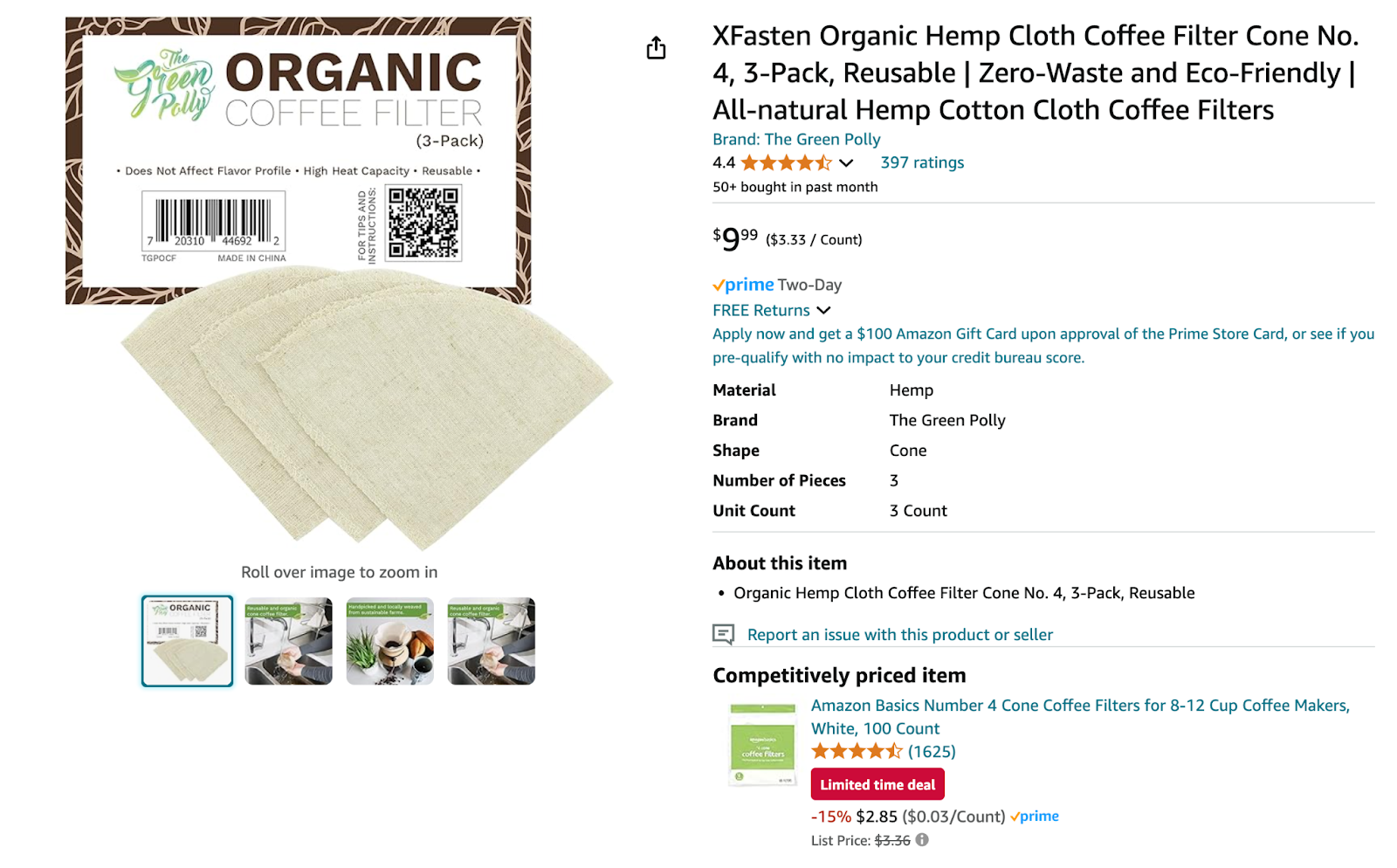
To complete the eco-friendly coffee set, reusable coffee filters can be made from organic cotton or stainless steel, eliminating the need for single-use paper filters. A very popular item among coffee enjoyers, they’re also easy to clean, last a long time (so you can charge more), and are compatible with various types of coffee makers.
11. Eco-friendly yoga mats
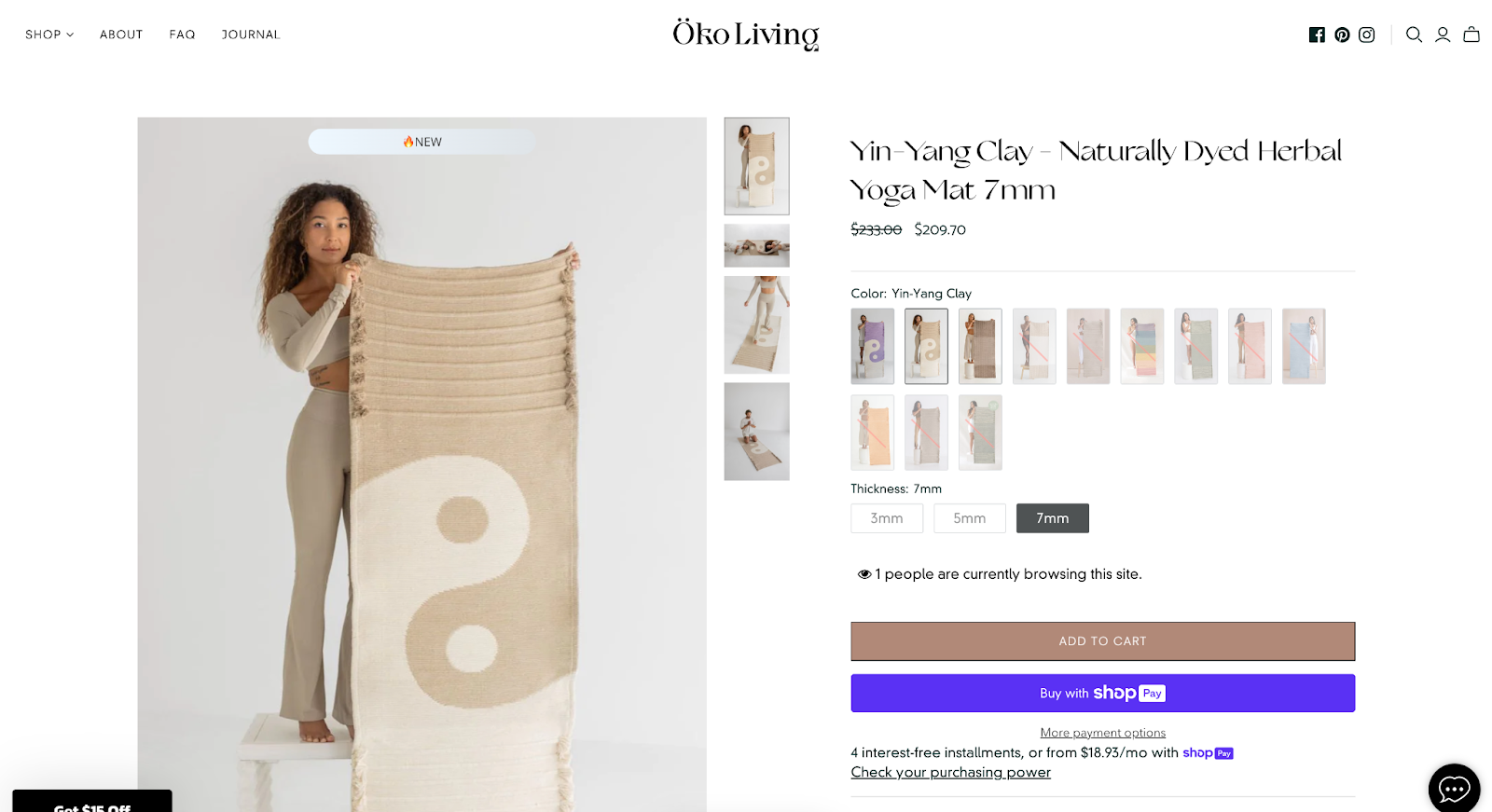
These are mats made from natural rubber, cork, or organic cotton. Their biodegradable and non-toxic materials provide a safer and more sustainable option for yoga enthusiasts. They're more likely to invest in the sustainability movement than the average population, so you’re serving a target demographic.
12. Natural fiber bedding
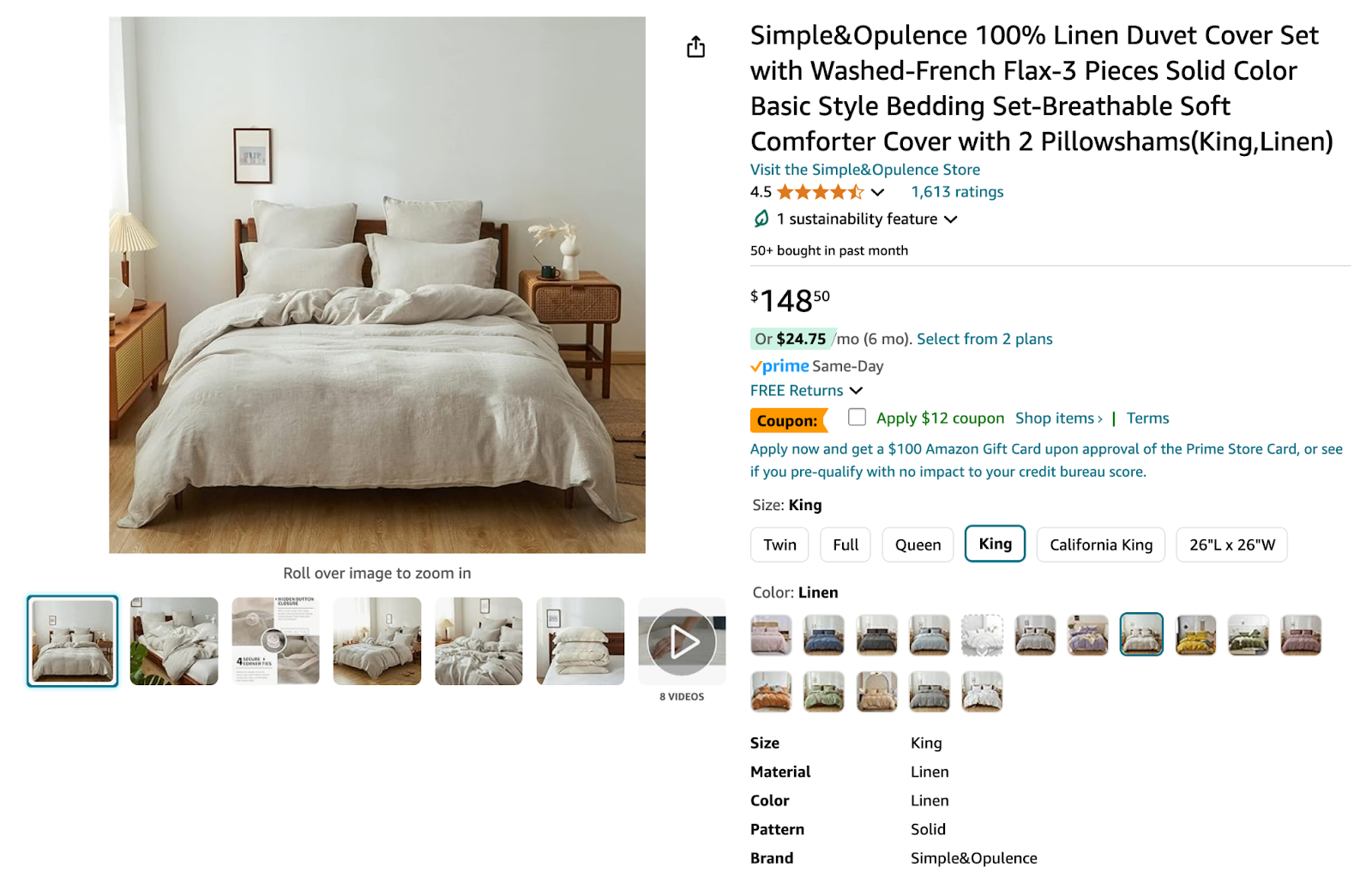
Bedding made from materials like organic cotton, bamboo, or linen is not only sustainable but also hypoallergenic and breathable. These materials are grown without harmful chemicals, making them a popular choice for consumers and families looking for healthier options for their kids.
13. Reusable makeup remover pads
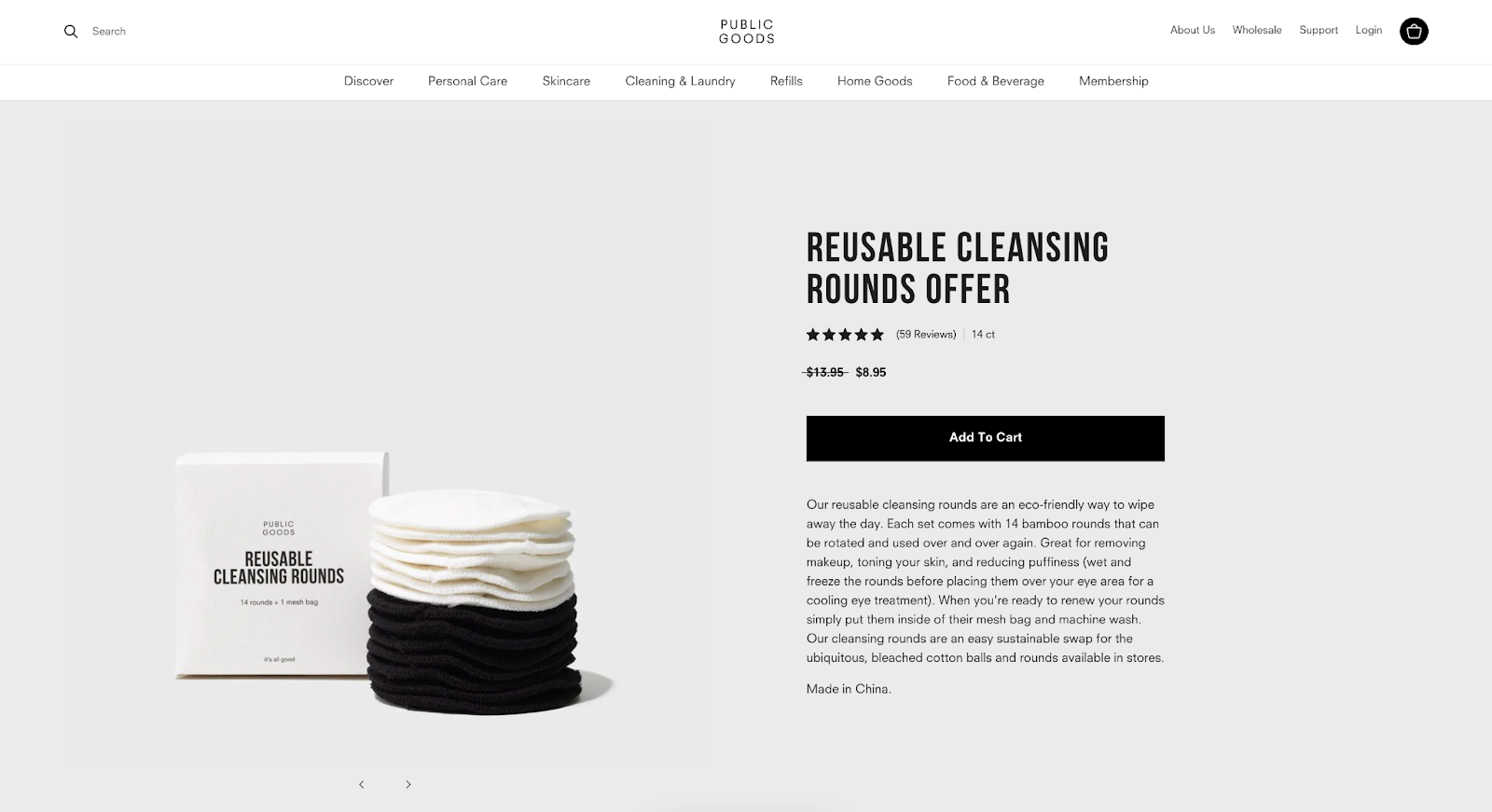
Often made from bamboo or organic cotton, these pads can be washed and reused multiple times, reducing the need for disposable cotton pads. They’re a very practical item that can also come with a laundry bag for easy cleaning.
14. Biodegradable cleaning sponges
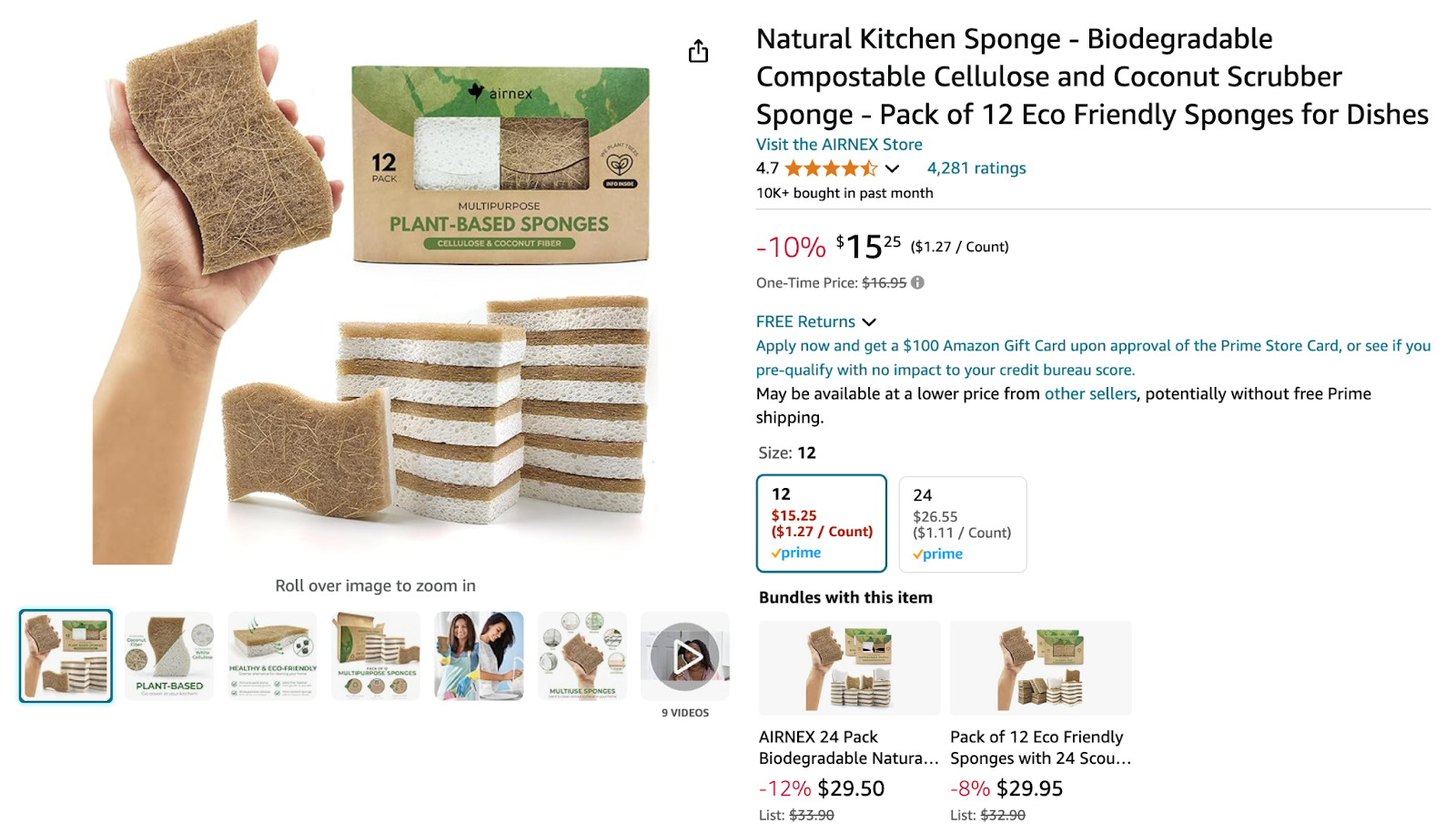
Effective at cleaning and breaking down naturally without leaving harmful microplastics, these sponges can be made from natural fibers like cellulose or coconut husk, being a sustainable alternative to synthetic sponges.
15. Beeswax candles
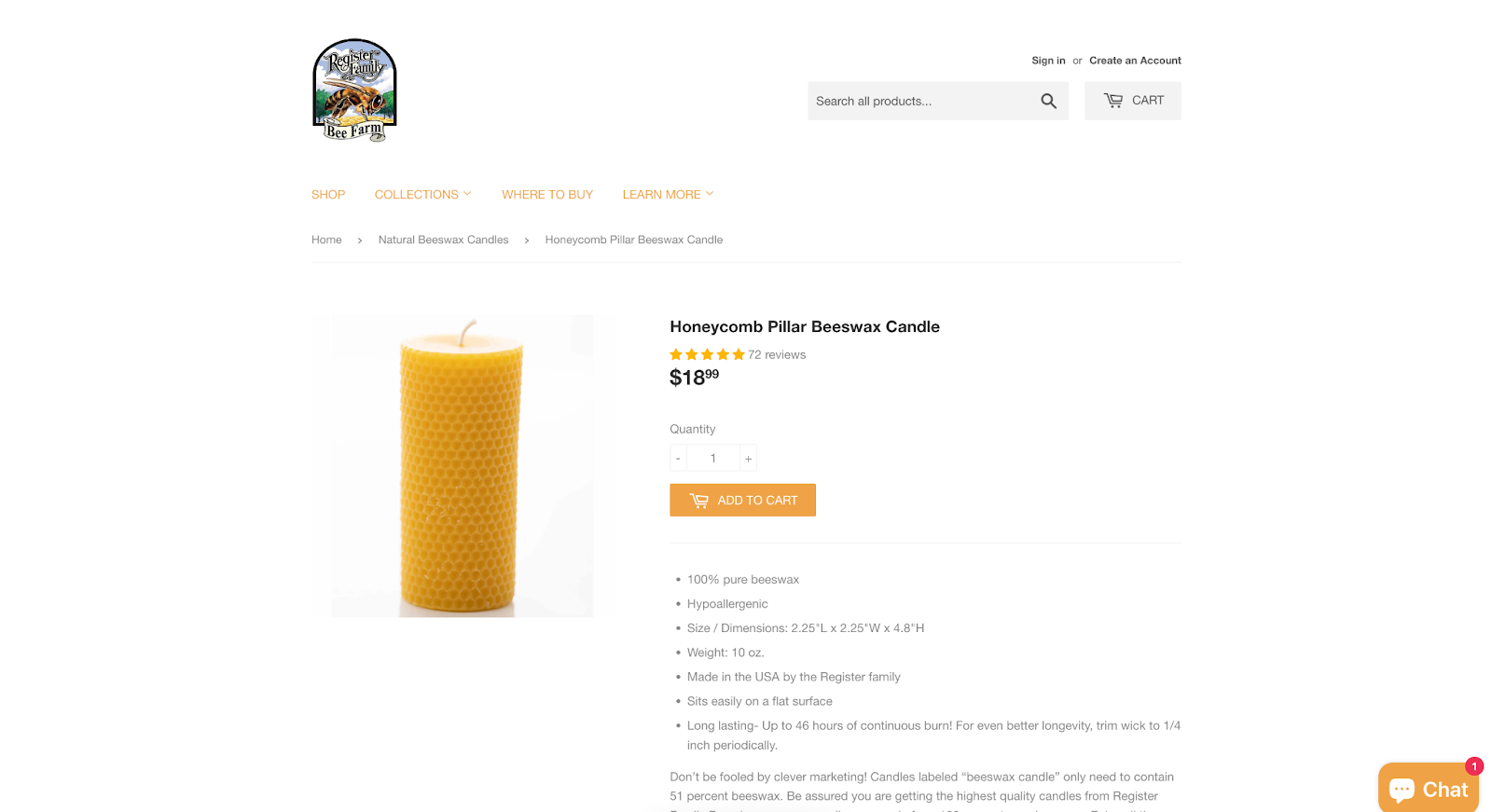
Beeswax candles are a natural, non-toxic alternative to traditional paraffin candles. They’re a bit expensive compared to regular candles, but they also burn longer, emit a pleasant honey scent, and release fewer pollutants into the air. Multiple luxury candle brands like Otherland have popped up in recent years, so you wouldn’t be the first to offer premium candles.
16. Sustainable home decor
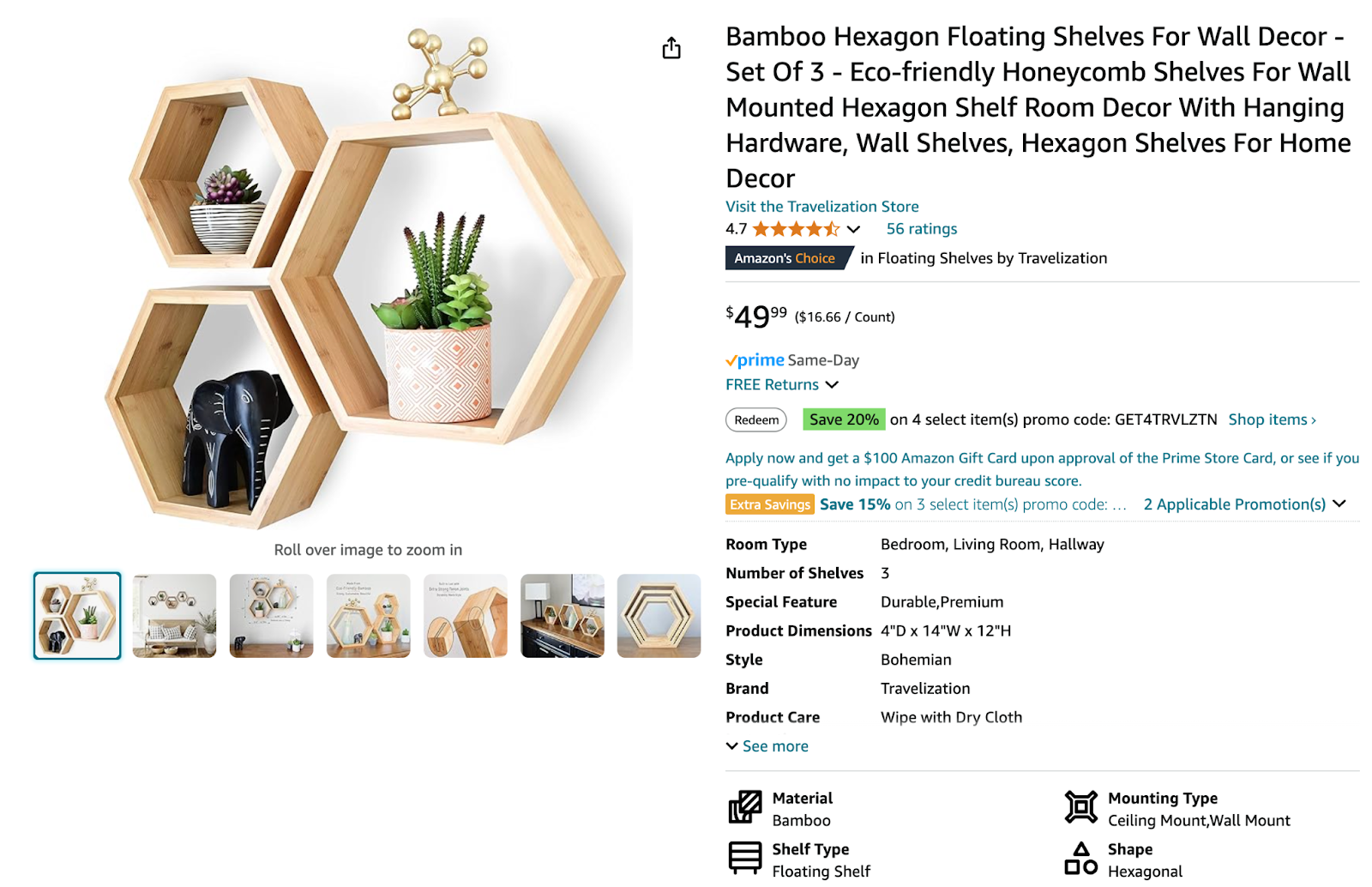
This includes items like recycled glass vases, bamboo frames, or rugs made from organic fibers. Products like these are often handcrafted, appealing to consumers who value both sustainability and products with a more rustic, natural appeal.
17. Reusable straws
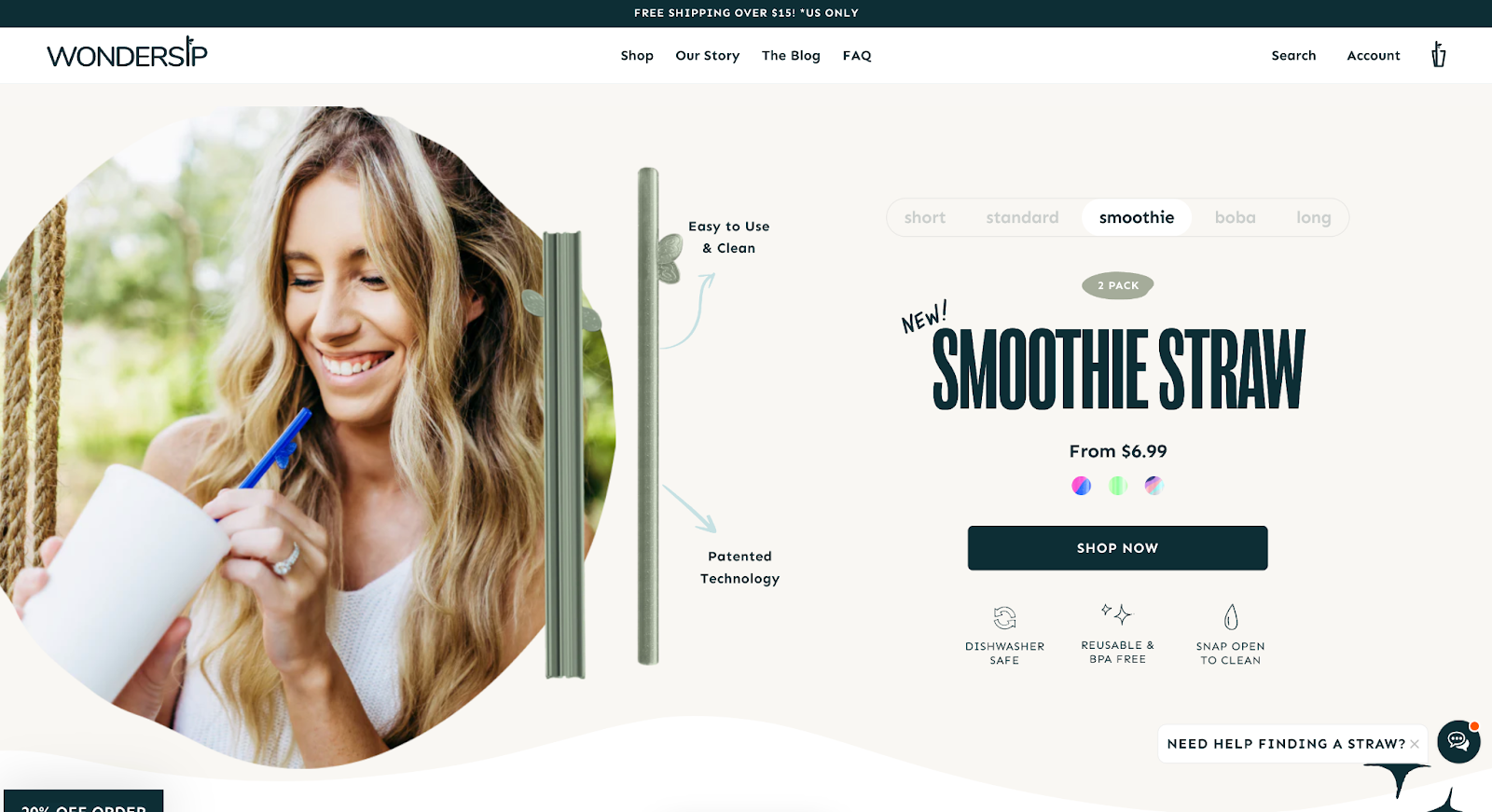
In many countries, there are regulations to control the distribution of plastic straws in restaurants and other places in an effort to reduce littering and plastic waste. Reusable straws are personal items made from materials like stainless steel, bamboo, or silicone. They’re easy to clean and often come with a carrying case.
18. Eco-friendly pet accessories
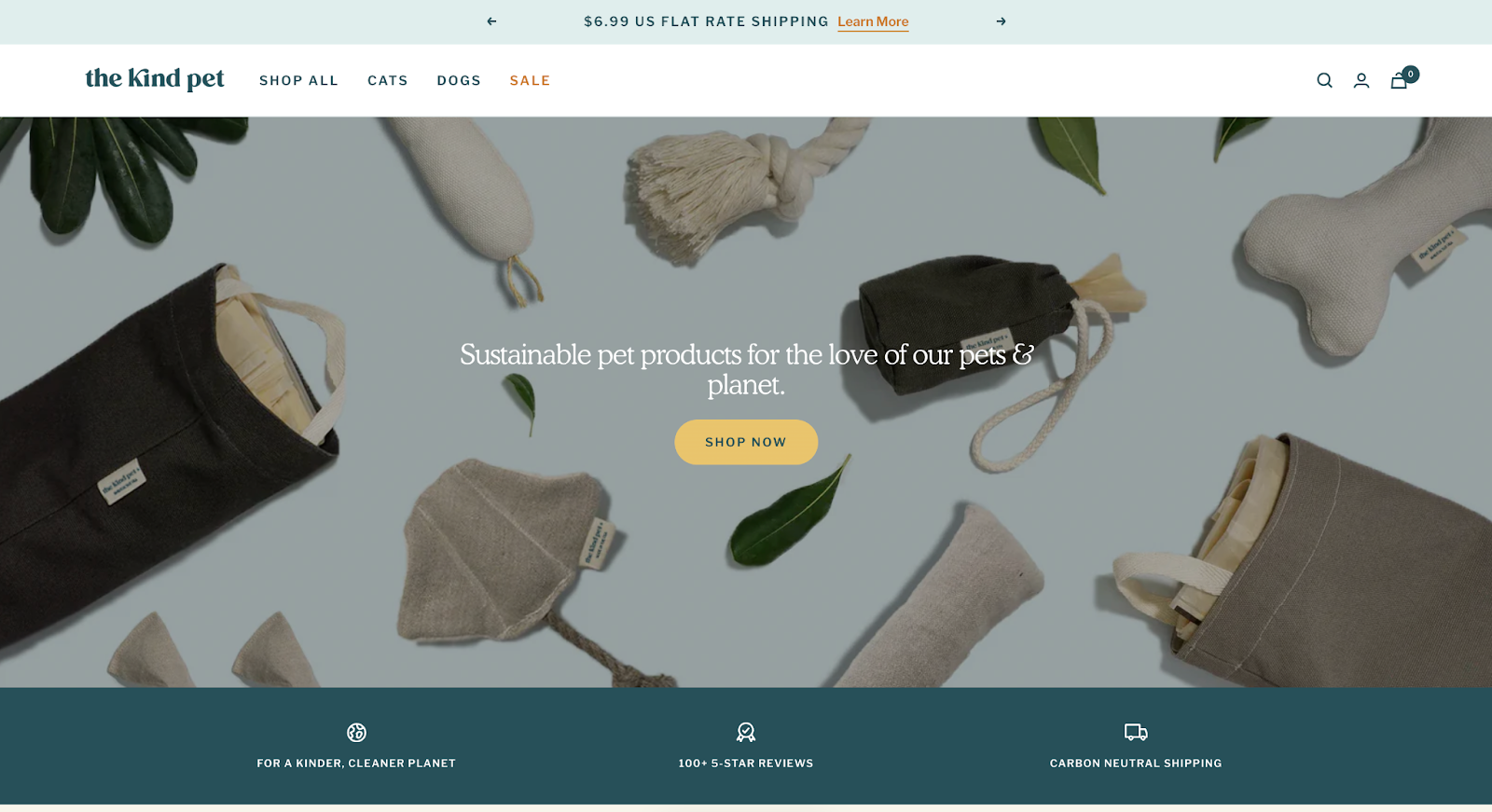
Pet accessories are always very popular items in any market. Sustainable options for pets include biodegradable waste bags and organic cotton pet beds, among other options made from recycled materials.
19. Eco-friendly pet toys
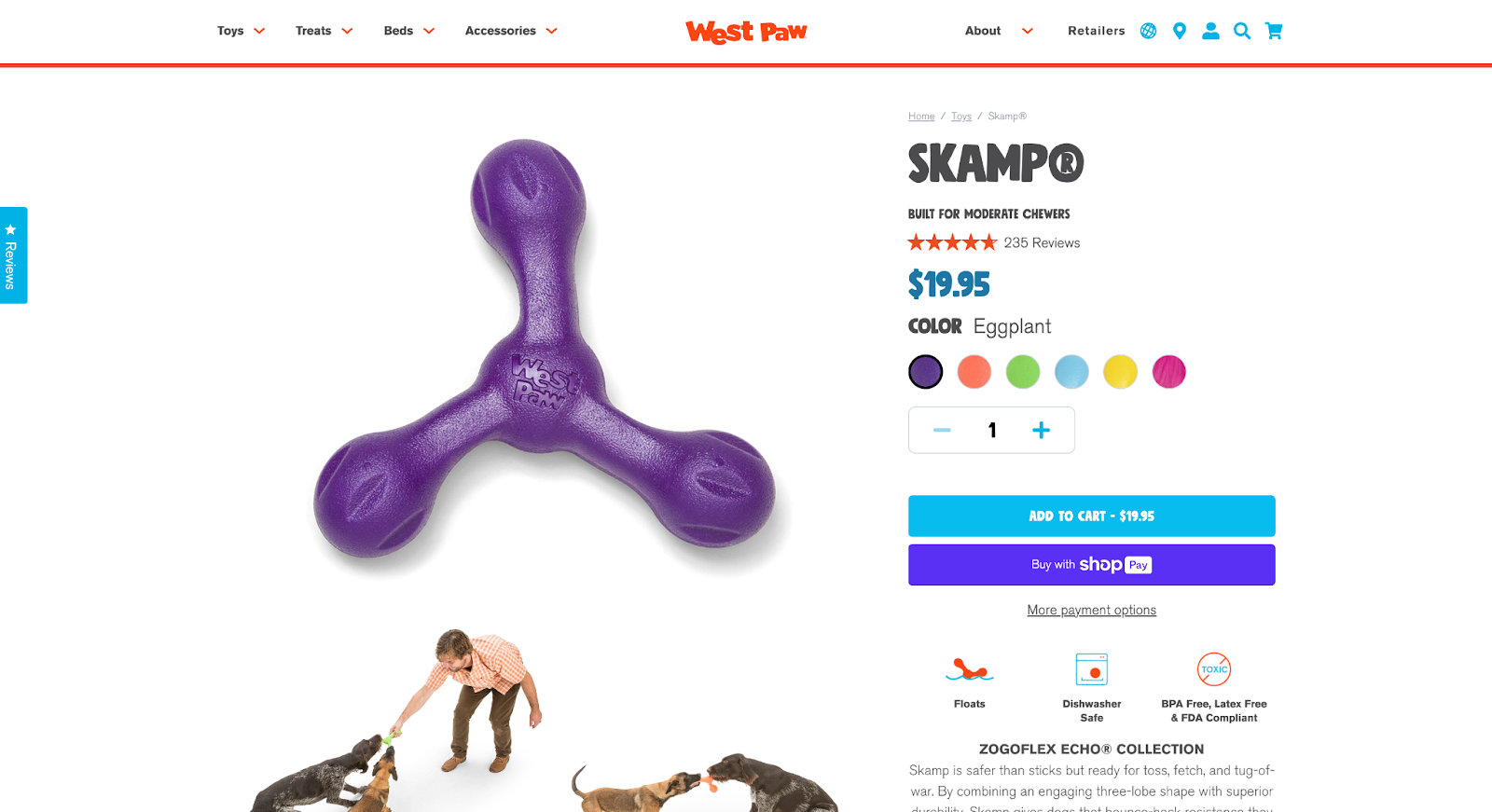
Eco-friendly pet toys blend high-end design with earth-friendly materials while reducing plastic waste. No dog owner wants their best friend to be chewing on toxic chemicals.
20. Solar chargers
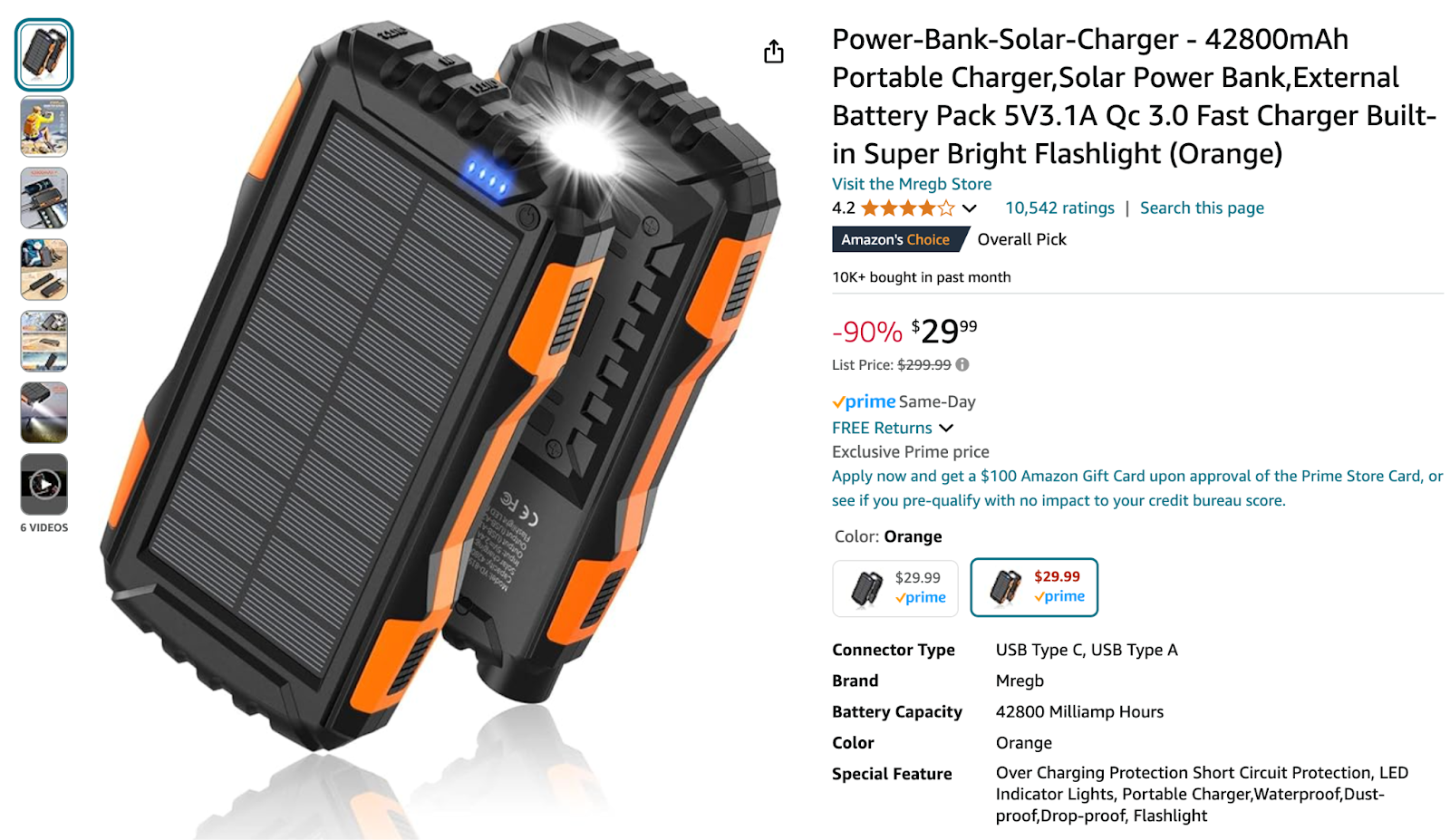
Harnessing the good old sunlight, these chargers can power up devices like smartphones, tablets, and portable speakers. They’re perfect for outdoor enthusiasts, travelers, or anyone looking to reduce their reliance on electricity, opting for a clean and sustainable form of energy. Many models are compact, waterproof, and equipped with multiple charging ports.
21. Compostable garden products
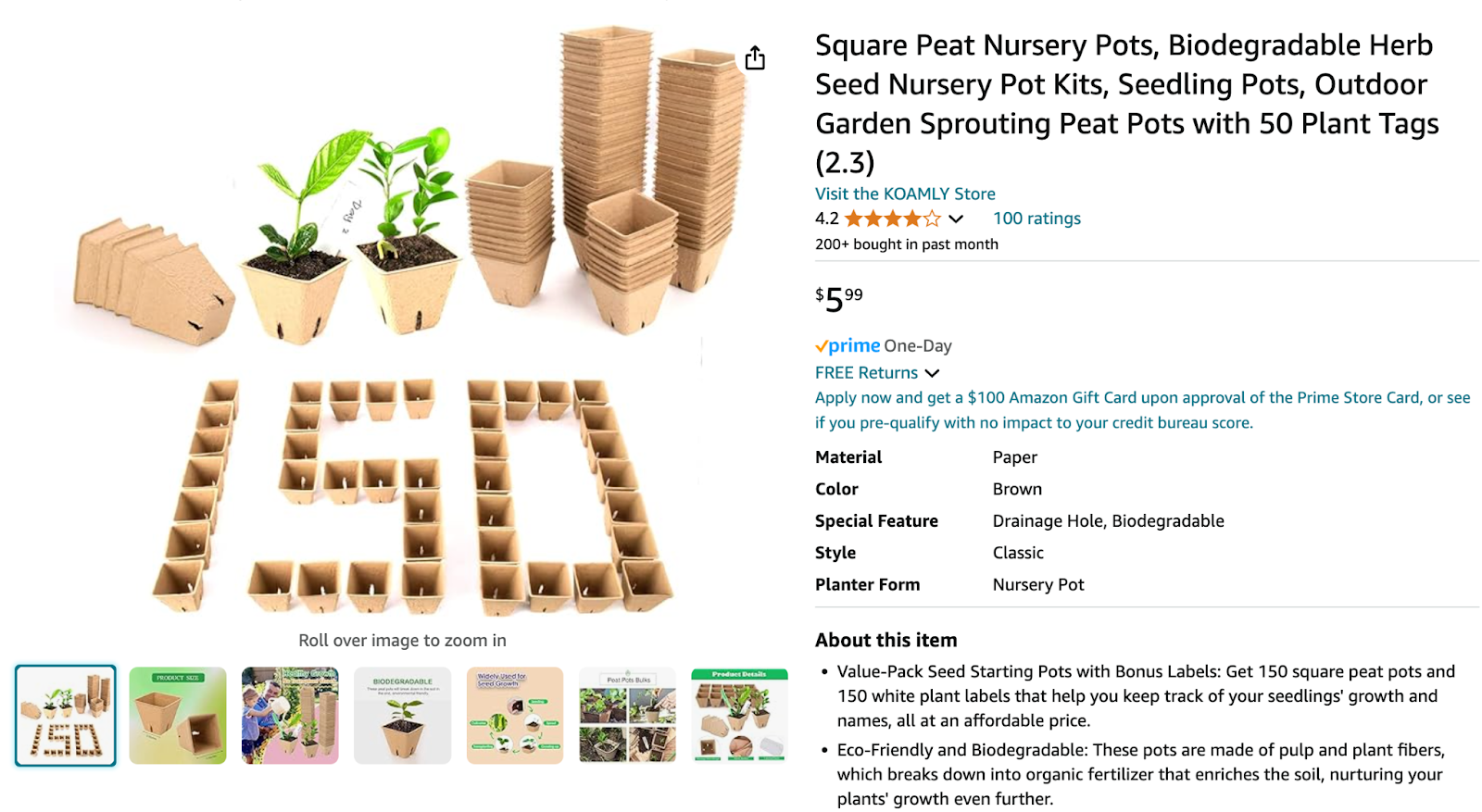
Gardening products are always very popular among consumers and sell very well. Eco-friendly options such as biodegradable peat pots are always in high demand and are preferred by gardening enthusiasts.
22. Recyclable children's toys
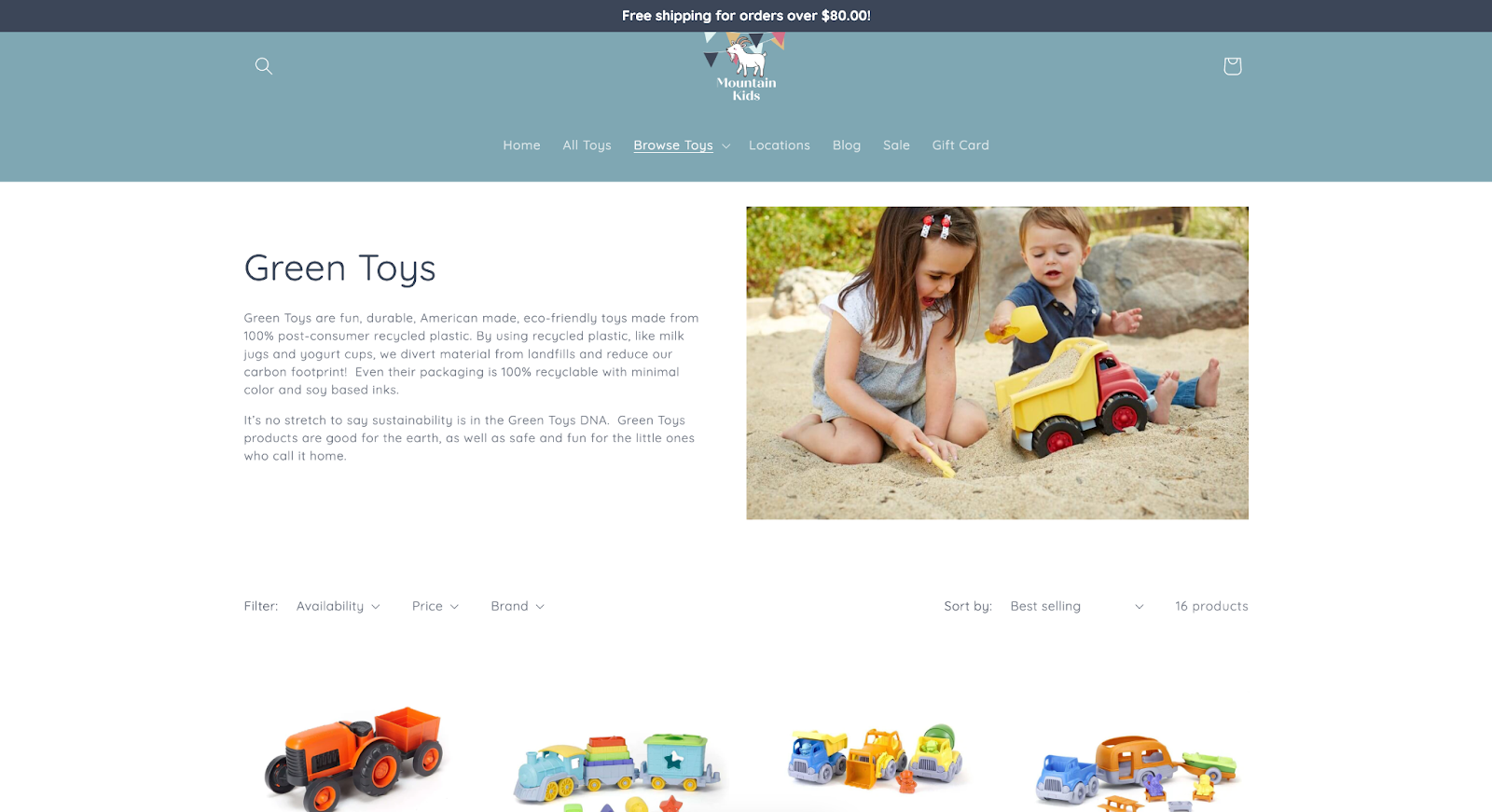
Toys made from wood and other recyclable materials are great products because of their simple manufacturing, durability, and high price point. Educational toys and musical instruments for babies are among the most popular items in this segment.
23. Eco-friendly baby products
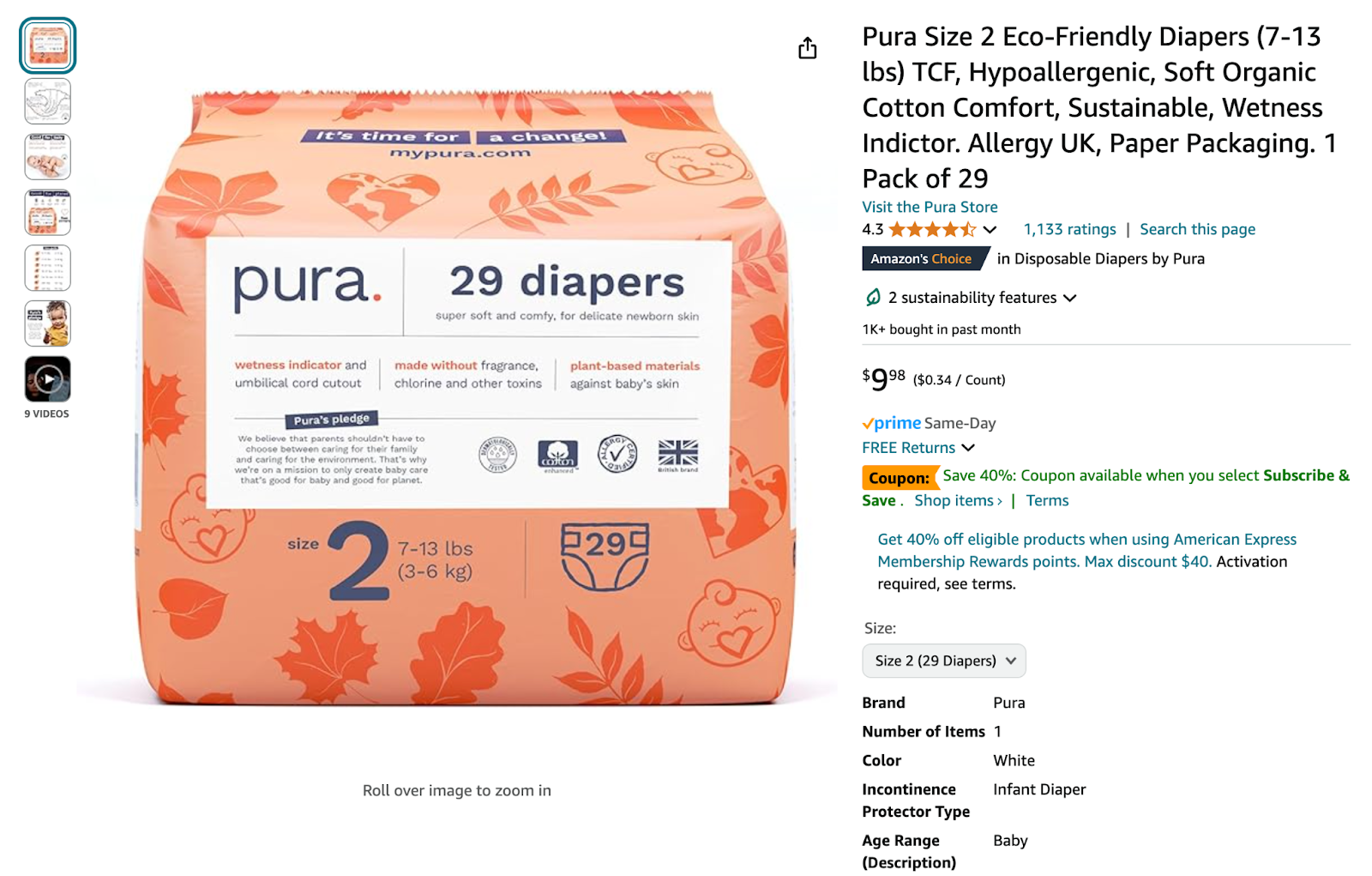
Parents are increasingly looking for products free from chemicals and other harmful elements for their newborns. Sustainable baby products like organic cotton diapers, wooden toys, and natural rubber pacifiers are designed with both the child’s and the environment’s well-being in mind.
24. Natural deodorants
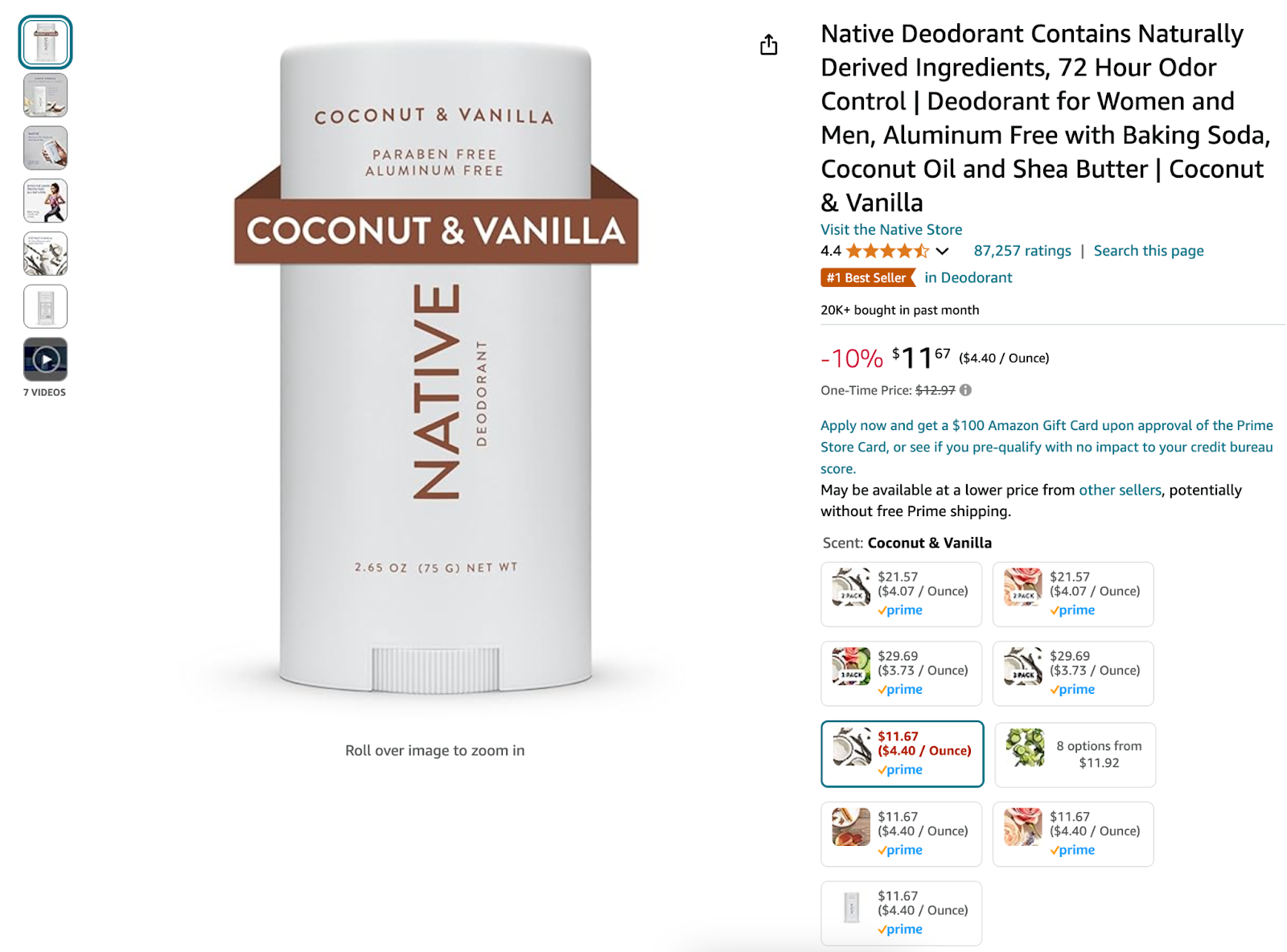
Natural deodorants are free from synthetic chemicals and aluminum and their packaging is made from recyclable materials. They're typically gentle on the skin and better for the environment. Native Deodorant sold to P&G for $100 million a few years ago—the market is huge.
25. Skincare products
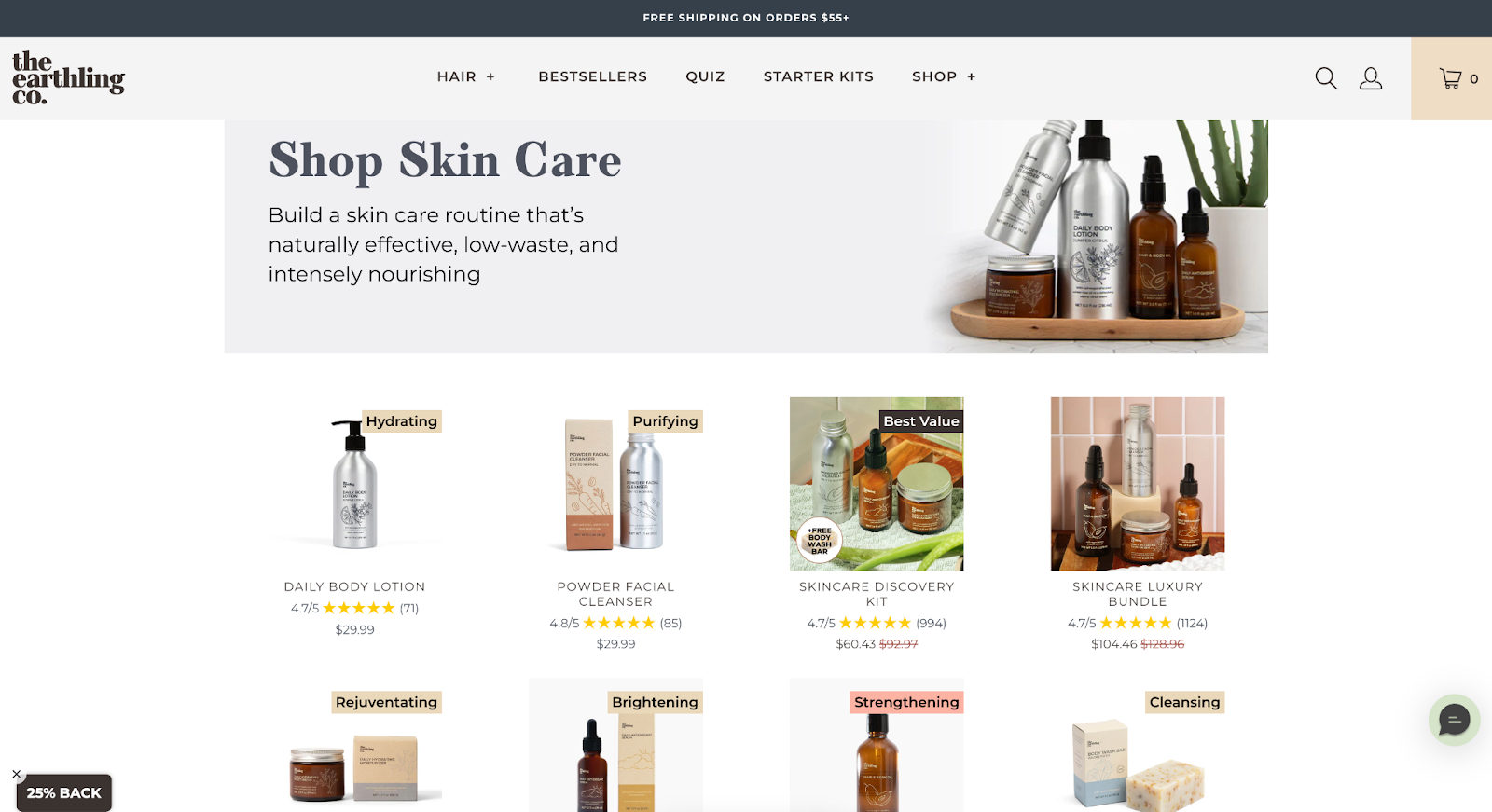
There are many skincare options made with natural ingredients, such as clay soaps or vitamin C serums. Some entrepreneurs even specialize in selling handmade skincare products, although this requires more effort to establish a loyal customer base.
26. Eco-friendly razors
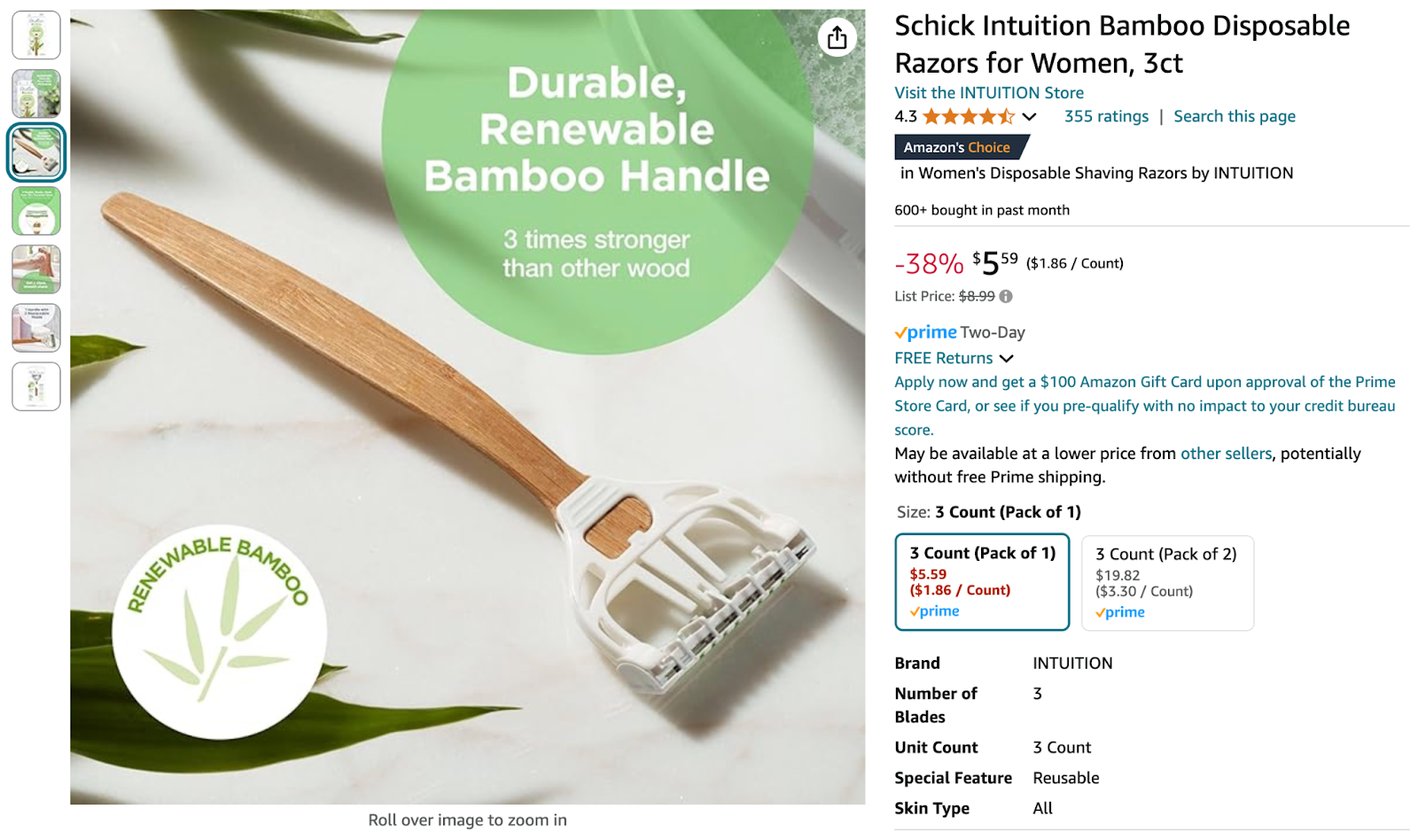
Hygiene products are becoming increasingly popular to buy online, and their eco-friendly versions are gaining space on shopping lists, like eco-friendly razors. Usually made from bamboo, they’re durable and reduce plastic waste, as only the metal blade needs to be replaced.
Finding Trending Eco-Friendly Products To Sell
One of the best advantages of working with eco-friendly products is their great potential to become a trend. With more influencers and content creators promoting self-care and wellness these days, more people are becoming interested in this same lifestyle, increasing the demand for natural and sustainable products.
And to always be up to date with what's in fashion with eco-friendly products, you can:
Monitor social media and influencers
Socials like Instagram, TikTok, and Facebook are hotspots for discovering trending eco-friendly products. Influencers and communities often share their favorite sustainable items. Using hashtags is always a good option that can lead you to what's popular in terms of products.
Use trend analysis tools
Tools like Google Trends, Trend Hunter, and Pinterest Trends can help you identify rising interest in specific eco-friendly product segments.
Check ecommerce platforms
Online marketplaces like Etsy, Amazon, and eBay have a strong eco-friendly market and sections dedicated to these types of products. By browsing these categories, you can see what’s selling well, read customer reviews, and understand consumer preferences.
Follow eco-friendly blogs, communities, and news outlets
Many blogs regularly publish articles about the latest in sustainable living. Subscribing to newsletters from these sources can also keep you informed about the recent news.
Sell Your Eco-Friendly Products With Whop
Setting up an online store and looking for advice, education, and guidance on ecommerce? You've come to the right place. Whop hosts a variety of communities aimed at helping you become a master of online business. Whether you're interested in dropshipping, selling digital products, or any other ecommerce strategies, you'll find communities, courses, and expert coaches ready to assist you.
Join an ecommerce community or enroll in an online course to learn how to identify trending products, set up successful ecommerce stores, run effective paid ads, and more. Our communities offer comprehensive course content, private groups, and personalized one-on-one coaching, giving you the tools and guidance you need to boost your online earnings.
Check out the Whop marketplace today and find everything you need to help your ecommerce venture thrive.
Best Eco-Friendly Products to Sell FAQs
Frequently asked questions about the best eco-friendly products to sell.
What are eco-friendly products?
Eco-friendly products are items created to have minimal impact on the environment throughout their lifecycle. These products are made from sustainable, renewable, or recycled materials and are often produced using processes that reduce waste, conserve energy, and limit harmful emissions. Eco-friendly products are also typically designed to be durable, reusable, or biodegradable, helping to reduce the overall environmental footprint.
What are the challenges of selling eco-friendly products?
Selling eco-friendly products can be challenging due to higher upfront costs for sourcing sustainable materials, educating consumers about the benefits of sustainable options, and navigating a competitive market. However, these challenges can be overcome by building strong supplier relationships, focusing on transparent marketing, and tapping into the growing demand for green products.
Are eco-friendly products more expensive to produce and sell?
Eco-friendly products can sometimes be more expensive to produce due to the higher costs of sustainable materials and other manufacturing processes. However, consumers are willing to pay a premium for products that align with their values and contribute to environmental preservation, making them a very profitable product to sell.
Why You Should Trust Us
Joe Niehaus is an ecommerce content writer at Whop and a product reviewer for top-tier publications such as The Quality Edit, Travel + Leisure, Men’s Health, and more. His constant research on trending products gives him valuable insights into the current landscape and consumer shopping trends.


